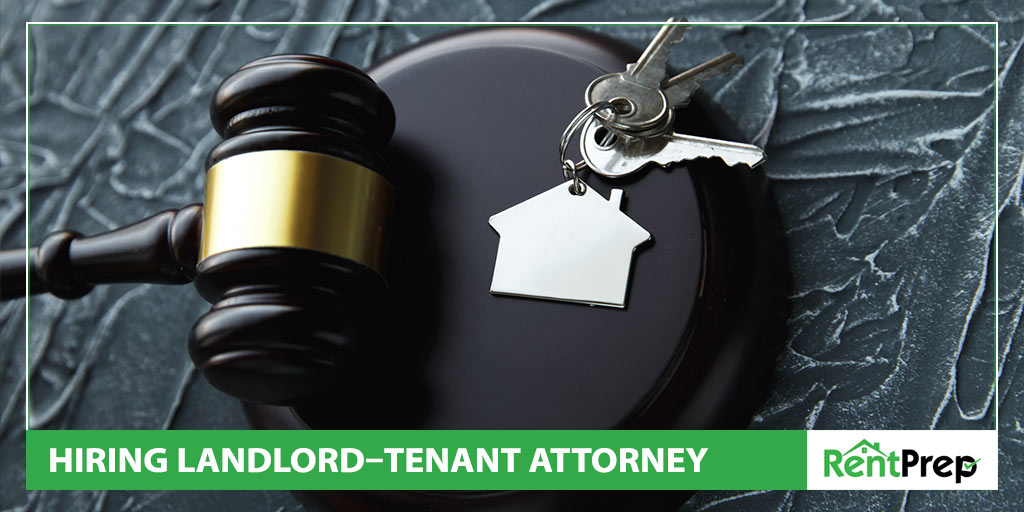
Landlords often invest time and money into finding the best team of property managers, carpenters, and other skilled professionals to work with. Though they might not always realize it, landlords should also put the same energy into hiring a landlord-tenant attorney.
A rental attorney is intimately familiar with landlord-tenant law in your state and is an incredible asset to have available. When you have questions about handling a situation within the bounds of the law, a landlord-tenant attorney will have the answers you need.
Landlords often end up in tricky situations because they don’t fully understand the law and accidentally commit minor violations. The best way to avoid this from happening is to form a relationship with an attorney who can help guide you.
Today, learn more about landlord-tenant attorneys and why they are beneficial, as well as nine great tips for hiring one in your area!
A Table Of Contents On Hiring A Landlord–Tenant Law Attorney
Get to know why having a landlord-tenant law attorney on your side is a great asset for any landlord. With their knowledge and your business strength, you can make sure that you don’t face any unexpected legal issues with your tenants.
- What Type Of Lawyer Handles Landlord–Tenant Issues?
- Why You Might Want An Attorney For Landlord–Tenant Issues
- 9 Tips For Hiring A Landlord–Tenant Attorney
- #1. Use State And Local Resources
- #2. Try An Online Landlord–Tenant Attorney Service
- #3. Ask For A Referral From Another Lawyer
- #4. Call Each Attorney On Your Short List For An Appointment
- #5. Ask Lots Of Questions
- #6. Get Details On Fees And Billing Procedures
- #7. Don’t Be Afraid To Change If You Aren’t Satisfied
- #8. Know When To Consult With Your Attorney
- #9. Hire The Attorney To Create Your Lease Agreement
- Rental Attorney FAQs
What Is A Landlord-Tenant Attorney?
A landlord-tenant attorney specializes in the legal issues surrounding landlord and tenant rights. This type of attorney is an incredibly valuable resource for you when you need it most.
Legal expertise can guide even the most prepared landlord through the challenges of managing their rental property. From drafting a lease agreement to processing an eviction, a good landlord-tenant attorney will be worth the investment in time. and fees saved.
Landlord-tenant lawyers know the ins and outs of legal property management. They are also familiar with common issues that plague landlords like you. With this knowledge, an attorney can help you avoid problems that could lead to high costs or significant legal battles.
What Type Of Lawyer Handles Landlord–Tenant Issues?

When you encounter problems with a tenant, it may seem logical to you to just handle them based on your own experience and expertise. You may know what’s necessary to resolve most issues, but there will be situations where you aren’t sure of the best legal course of action.
In those cases, working with an experienced rental attorney familiar with local and state laws is the best way to handle the situation. An experienced attorney can help you to make the right legal choices and provide the support needed to keep moving forward with your rental business.
Why You Might Want An Attorney For Landlord–Tenant Issues
Having an attorney to guide landlord-tenant issues might not seem like a priority to many landlords. After all, they’ve made it this far without needing to bring in a rental attorney to help with any issues they’ve run into with tenants.
However, that doesn’t mean that you cannot benefit from forming a relationship with a local landlord–tenant attorney. Here are some of the reasons you might want to work with an attorney to protect the future of your business.
Experience With A Variety Of Issues
Often, landlords only think to contact a landlord-tenant attorney when they are dealing with a big eviction case or have a similar problem. blow up. However, this type of attorney likely has experience with a variety of real estate-related issues.
For example, you might want to seek assistance with matters including:
- Landlord-tenant disputes: rent, security deposits, tenant rights, etc.
- Eviction issues: eviction case assistance
- Lease agreements: writing, checking for loopholes, adding necessary addendums, ensuring Fair Housing Act and other ordinance compliance
- Commercial real estate: leases, litigation, business disputes, etc.
- Personal injury claims
- Business law and planning: protection of assets and estate planning
These are just some of the landlord-tenant and rental business issues that an experienced law firm might assist with.
Even if you do not have ongoing issues with eviction or a large dispute, there are many ways you might be able to utilize the services of an experienced rental attorney.
Local Knowledge
When you focus on finding a landlord-tenant attorney near me, you can be sure the attorney will have a good idea of what types of cases are often seen in landlord-tenant cases and how you can best avoid those situations in the first place. By discussing these topics with a local lawyer at a law firm you trust, you’ll gain specialized knowledge that will help you to build a stronger business.
Long-Term Cost Balancing
Many landlords avoid hiring an attorney because they believe it will be too expensive. However, the typical cost of getting help from a lawyer for a few hours to review documentation or for an entire case is not as much as many believe it to be.
The key to balancing the cost of a lawyer is to make sure that you are aware of what the costs incurred will be upfront. Ask about payment methods, billing type, and expected costs from the get-go. This will ensure that you only use the lawyer within your budget, which will be crucial for your business.
Additionally, investing upfront in the cost of hiring a landlord-tenant attorney prevents you from building up costs in fees applied during lease violations, eviction cases gone wrong, and other issues. Ultimately, the cost of an attorney is worth it because it protects you from other issues while also providing peace of mind to landlords like you.
9 Tips For Hiring A Landlord–Tenant Attorney
Have you now decided that bringing on board an experienced landlord-tenant attorney would be a great way to ensure that your rental property business follows the letter of the law? If so, it’s time to begin the search.
Finding the right landlord–tenant attorney can be tricky, so here are 9 tips you can use to select the right one for you.
#1. Use State And Local Resources
Turn to the state bar association for a list of practicing attorneys in your area. There are also plenty of directory websites that will list attorneys by practice area. State business or real estate magazines may also contain lists or even advertisements from landlord–tenant attorneys that will help you begin your search.
#2. Try An Online Landlord–Tenant Attorney Service
There are many directories online for landlord attorneys where you can ask questions or hire a local lawyer. One such directory is RocketLawyer.com. They allow you to ask questions and then choose an option to get your questions answered by a local attorney. If you click the link above and ask your question, you’ll end up seeing a screen that looks like this:
Many landlords prefer the membership model because they get state-specific forms and unlimited answers to their legal questions. The fee is tax deductible as well.
#3. Ask For A Referral From Another Lawyer
When it’s time to find a landlord-tenant attorney near me, the best way to do so might be to talk to other lawyers you know in the area.
You may know another attorney who specializes in a different area of law, but who may have connections personally or professionally to a landlord-tenant attorney.
Remember, just like doctors have specialties, so do attorneys. Don’t be fooled into thinking that any attorney can do this type of work. You want to be sure that the lawyer you bring on will be armed with the knowledge you need to succeed.
#4. Call Each Attorney On Your Short List For An Appointment
After going through the steps above, you might have a list of lawyers who you are willing to consider working with in the future. Now, it’s time to narrow down that list.
Start the process by calling the attorneys on your list and take notes about how accessible they are and how quickly they call you back. You want the landlord-tenant attorney you hire to be responsive to you when you need them, whether it’s an emergency or not.
Set up a short appointment with those attorneys you’re interested in, to discuss your needs and what types of fees they would charge. This will help you to make clear comparisons.
#5. Ask Lots Of Questions
When you get the chance to talk to the prospective hire, ask questions. This is key for figuring out if they have the right attitude you are looking for, and it’s also crucial for understanding if they have the experience you need in the rental field.
For example, ask about how many years they’ve been practicing landlord-tenant law. It’s better to choose someone with at least a few years of experience than a brand-new attorney.
Specifically ask whether the attorney has experience in working with a property like yours, such as multi-unit housing, Section 8 housing, or a single-family home.
The more questions you ask, the better you’ll get to know the attorney’s communication style, personality, and depth of knowledge. All of this information will help you to make a more informed decision about which lawyer is right for your needs.
#6. Get Details On Fees And Billing Procedures
Attorneys can choose to charge and bill in several different ways, so make sure you are clear on what using the attorney’s services will cost you. Make sure you are also clear on the payment process for any bills you incur.
Additionally, find out how much an attorney would charge you to call and ask them some questions from time to time. Many lawyers are happy to do this, but they may charge a rate-per-minute for such calls. Knowing the cost in advance is crucial.
#7. Don’t Be Afraid To Change If You Aren’t Satisfied
If your landlord-tenant attorney is not doing the job you expected, don’t hesitate to seek out another lawyer who may be a better fit for you.
Whether the attorney you’ve hired is just too hard to get a hold of or your personalities just don’t mesh well, don’t get stuck with someone who is not meeting your needs in one way or another.
#8. Know When To Consult With Your Attorney
Landlords should also consult with an attorney if they are ever being investigated for illegal discrimination, evicting a tenant, sued for injury, sued for property damage, audited by the IRS, fighting slander or libel, or anytime they are going to court (such as small claims court).
While some landlords do navigate successfully through these legal issues on their own, having a knowledgeable attorney by your side can prevent you from making mistakes that lead to more serious issues.
If you are confident in a court case on your own, don’t be afraid to schedule a short appointment with an attorney before the case goes to court, to review your documentation and ensure you have everything you need. Of course, you can hire them to represent you as well.
#9. Hire The Attorney To Create Your Lease Agreement

It’s a wise idea to use an attorney to write your lease agreement so that it covers all your rights and stays compliant with local, state, and federal law. Rather than download a generic lease agreement from the internet, work with the attorney to draft an agreement that specifically reflects your property and your expectations from a tenant.
If you are concerned about the cost of this, you can alternatively create your base lease agreement and then work with a local attorney to ensure that it meets all requirements. This will ensure that you get their expert legal feedback while likely lowering the overall cost of the process.
RentPrep offers great resources for landlords who want to write their leases. Check out our landlord starter form kit today to get the base lease agreement and lease addendum examples as well as many other form examples that will be useful for landlords like you.
Rental Attorney FAQs
Are rental attorneys exclusively used by landlords?
No, both tenants and landlords make use of the services provided by lawyers working in real estate. From reviewing rental agreements before they are signed to helping with eviction cases, landlord-tenant attorneys can work on either side of the case. Some attorneys may specialize in one perspective, but most are trained to handle both sides.
Do you have to have a lawyer to handle landlord–tenant issues?
When dealing with any type of landlord-tenant issue, ranging from eviction issues to general disagreements, you might wonder if you are required to bring on a lawyer to work out the issues. The answer is simple: no.
It is not a requirement to have an attorney. Even if you go to court for an eviction case, you do not have to have a lawyer with you. If you are comfortable and confident handling it on your own, you can do that.
However, there are times when having an attorney can be very helpful. First, you should always consult one if you aren’t sure of the real estate law on the issue; they can provide the necessary guidance to succeed.
Having a lawyer can also help with maintaining tenant relationships when you are working through complex issues. A lawyer can deliver the news in a legal but friendly way, which creates a degree of separation between your relationship with the tenant and the problem. When the tenant will still be your tenant after the issue is resolved, this is very important.
What type of attorney handles evictions?
Real estate attorneys are sometimes called landlord-tenant or rental attorneys. The exact type of law that an attorney specializes in will determine whether or not they can help you with the issues that you are having.
What type of attorney handles evictions? Any real estate attorney can assist you, but you will be best supported by a landlord-tenant attorney with experience in your location. This will give you the best chance of winning the case.
What type of case is an eviction?
An eviction that progresses to be a formal case is a type of civil suit. In most states, this means that you must represent yourself or hire an attorney to help you. Formal eviction cases allow you to submit documents to the court to prove your case, and the tenant will be given a chance to defend themselves.
At the end of the civil case, the judge will determine the outcome and what will happen next according to the law.
Do property managers handle evictions?
While property managers can handle some parts of an eviction, such as letting tenants know when they violate their rental agreements, they cannot always take your place in court.
If you have an eviction case that has to go to court to be resolved, you as the property owner will need to be part of this process in most states. If you want a property manager to go in your stead, you will need to sign documentation showing that they represent you as your agent. Not all states and cities allow this, but most have some type of process to permit it.
Most property management companies will have you sign this documentation long before an eviction case comes up. That is because they are signing leases on your behalf when working with tenants, and this means they need to be legally recognized as your agent. This also enables them to enforce the terms of the lease when needed.
If your property manager does not have you sign this type of documentation, it is in your best interest to inquire about it and find out how to make the process more official.
When You Need Extra Advice
Landlords often feel like they need to be equipped to handle everything on their own, but that is far from true! Whether you’re a brand new landlord or you have years of experience, there will be times when hiring a landlord-tenant attorney for additional legal advice will be in your best interest.
The knowledge provided by experienced rental attorneys can be the difference between wasting a lot of time and money or winning a civil case against your tenant. Keep this in mind when deciding if you should pay for some extra help.
Have you used a landlord-tenant attorney? What were your experiences like? Please share this article and let us know your stories in the comments section below.


